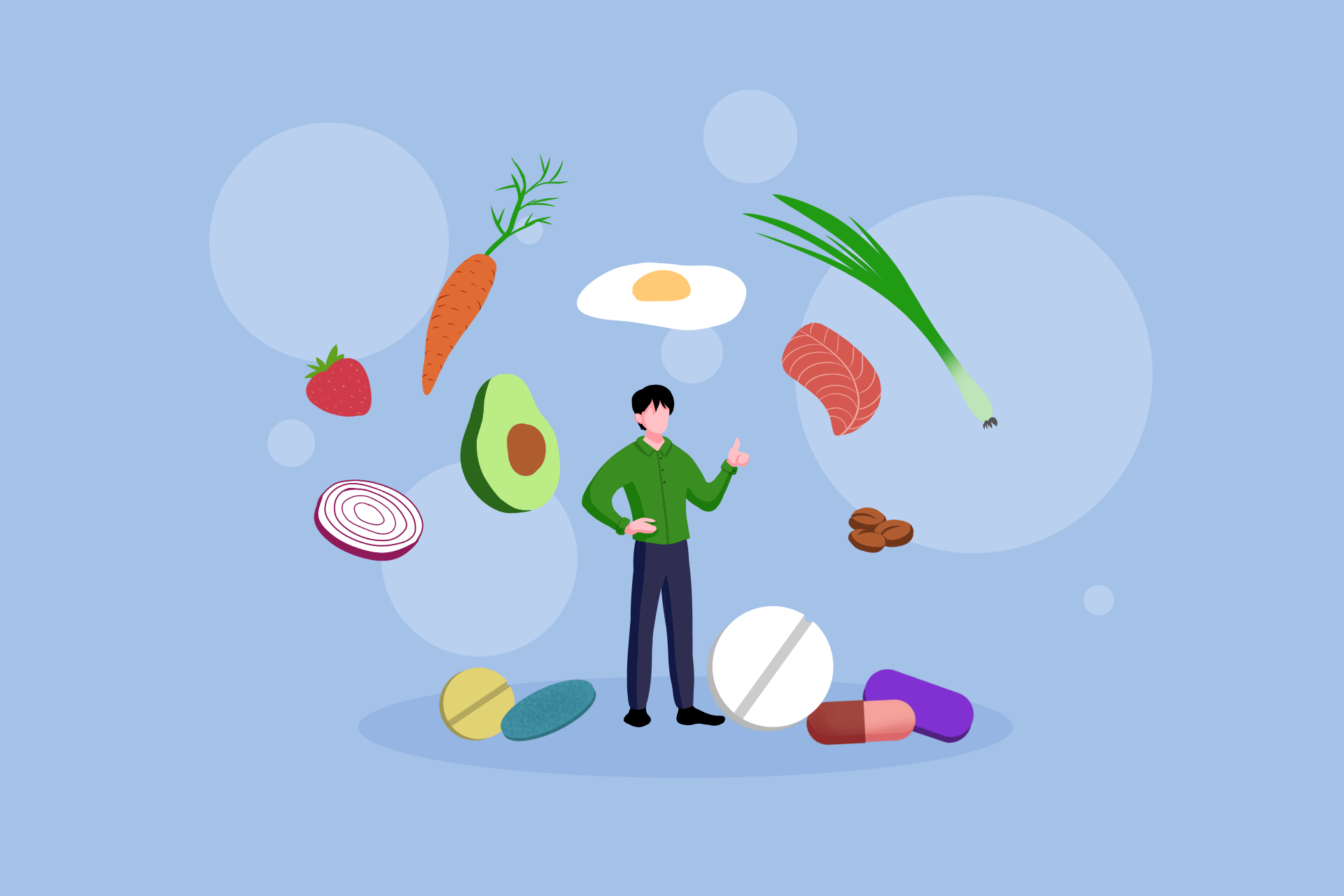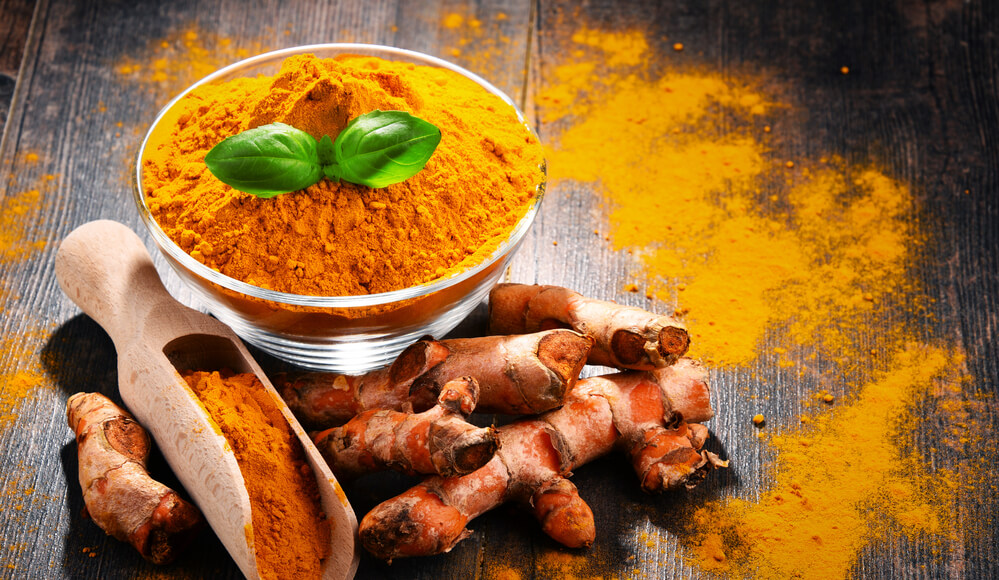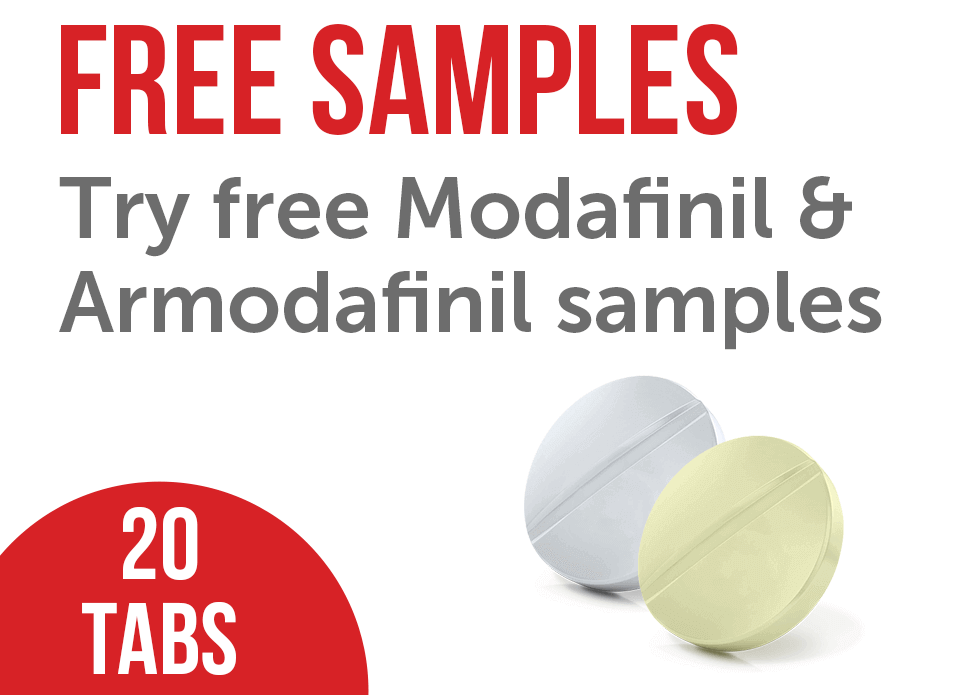According to a report published by the Allied Market Research, the memory and cognitive-enhancing drug market was worth $5.07 billion in 2020 and is expected to rise to $8.68 billion by 2030. Nootropic brands keep springing up each day, introducing new products into the market. While this sounds like great news, it makes it incredibly difficult for nootropic newbies to find what really works for them.
If you find yourself in this situation, this guide is for you. Here, you will find the 10 best products you can rely on, as well as the best places to buy them. Let’s dive in.
What Is Natural Nootropics?
Nootropics are herbs, drugs, supplements, or other substances available in capsule, powder, or liquid form that are capable of improving memory, increasing alertness, boosting energy, and promoting wakefulness [1]. There are two main types: natural and synthetic nootropics. As the term implies, natural nootropics are organic compounds that occur naturally in fungi, herbs, roots, and plants. On the other hand, synthetic nootropics are created in a lab.
Natural nootropics, in their purest form, are known to improve cognition without putting the user at risk of experiencing side effects. And unlike synthetic nootropics, they are believed to improve brain health over a period of time.
Ancient traditions have since relied on natural nootropics to combat cognitive illnesses such as dementia and to improve memory and learning [2]. Today, many top-level executives of Fortune 500 corporations, engineers, scientists, artists, and celebrities, among other professionals from all walks of life, take them to increase performance and become more productive.
There are several nootropics available, but some provide better results than others. Choosing the right one will allow you to enjoy the associated benefits without facing any serious health risks.
Natural Nootropics Benefits
Natural nootropics offer a wide range of mental or cognitive benefits, some of which include:
- better sleep quality;
- increased focus;
- improved memory and learning ability;
- increases mental processing speed;
- improves concentration and attention span;
- increases alertness and promotes wakefulness;
- improves overall mental health by increasing blood flow to the brain.
It is worth noting that one nootropic may not provide all the benefits listed above. Different nootropics have very specific benefits. Thus, it is important to know the exact benefits one needs and then go on to find a nootropic that provides those sets of benefits. For example, Bacopa monnieri enhances memory and reduces anxiety. On the other hand, L-theanine is better at improving alertness and boosting cognitive performance.
Side Effects and Safety of Natural Nootropics
Natural nootropics offer great benefits. Although many individuals believe that they are completely free of side effects, that is not exactly true. Every ingestible substance, including water, poses a risk of side effects, especially when taken excessively, and natural nootropics are no exception. They may cause mild or even life-threatening adverse effects to certain individuals based on factors such as age, sex, weight, and the type of food consumed before taking it.
The common ones include:
- drowsiness;
- headache;
- flushing;
- muscle ache;
- nausea.
Although the above-listed adverse effects commonly affect first-time users of nootropics, they are usually mild and tend to disappear without any treatment. Note that more serious adverse effects, such as fast heart rate, insomnia, depression, high blood pressure, rash, and blood circulation problems, can result from taking nootropics too. Fortunately, they rarely occur. Be sure to seek urgent medical help if you experience any of them.
Nootropics influence the workings of the brain and, as such, should be used with utmost care. Consult your doctor before you stack or take any single product, regardless of the brand.
Natural vs. Synthetic Nootropics
Natural vs synthetic: what’s the difference between them? As stated earlier, natural nootropics are nootropics that naturally occur in plants, herbs, and roots. They tend to provide a wide range of benefits and improve overall brain health over time while serving as a brain booster.
On the other hand, synthetic or man-made nootropics are created in a lab. They can be further subdivided into prescription nootropics such as modafinil, armodafinil, adrafinil, etc., and dietary supplements such as Alpha Brain.
Some synthetic nootropic brands are generally better than natural nootropics because they are clinically proven and their therapeutic dosages are established. They provide more targeted benefits and their side effects are known. Natural nootropics may have fewer side effects, but their therapeutic dosages are often not clinically determined, and this could result in them causing more serious adverse effects [3][4].
Your Best Natural Nootropics – Choice 2026
The best nootropics are those that are both safe and effective. When looking to select a good natural nootropic, there are certain things worth considering. One of the most important ones is bioavailability — the rate and extent to which a drug can be absorbed and used by the body [5]. For example, turmeric is a powerful nootropic, but some of the compounds it contains are poorly absorbed, and this reduces its effectiveness.
After much digging and comparisons, we have put together a list of the 10 best natural nootropics that really work. They include:
Ginkgo Biloba
Ginkgo biloba is one of the most popular natural cognitive enhancers in the nootropics community. It has been used by the ancient Chinese as a common treatment, and many still take it today to sharpen their thinking, improve memory, and even treat certain memory problems caused by Alzheimer’s disease [6].
Several studies have been carried out to confirm its effectiveness, but the results have been mixed. Some of the studies suggested that the drug may increase cognitive speeds and boost memory in healthy individuals. Others have not found any benefits.
There is good evidence that this nootropic improves blood circulation to the brain. More blood flow to the brain translates to more oxygen, which ultimately means increased cognition [7].
Green Tea and L-Theanine
L-theanine is often considered one of the most effective nootropics. It is an amino acid with powerful nootropic effects. It is known to increase dopamine and serotonin levels in the brain, which ultimately elevates mood and brings about a feeling of well-being. It is commonly extracted from certain mushrooms, green tea, and black tea [8][9].
As a nootropic, L-theanine is great for focus. It also increases alertness and helps users experience a calm effect. Several studies have been conducted on it to ascertain its safety and degree of effectiveness. In one such study, the organic compound showed a reduction in some stress-related symptoms and a high tendency to boost cognition in a healthy population. It also proved to be safe and has since been considered a suitable ingredient in drugs or supplements for treating mental conditions in healthy individuals [10].
L-theanine is considered a natural solution for ADHD treatment. It surely offers several interesting benefits, but be sure to talk to your doctor first if you consider using it.
Bacopa Monnieri
Bacopa monnieri is a creeping or crawling herbal plant that is native to Africa, India, Asia, and North and South America. Its extracts are believed to increase dopamine, serotonin, and other neurotransmitters in the brain that are associated with memory, learning, and thinking. It is also believed to have a protective effect on the brain, especially in dementia and Alzheimer’s-related diseases [11].
Several research papers suggest that its extract is really capable of safely enhancing cognitive function. However, more studying is needed to learn about its effects in both the short and long term.
Rhodiola Rosea
Rhodiola rosea is yet another nootropic that is believed to have a protective effect on the brain, improve memory and learning, and overall cognitive function. It is a flowering plant whose extract is also known to produce a calming effect and reduce symptoms of emotional stress.
Some of the other benefits of its extract include increased alertness and mental stamina. It can also be used for energy. Several studies have been conducted on Rhodiola rosea. While some of them have found no benefits in its extracts, others suggest that it is capable of boosting psychological functions and relieving stress [12].
Choline
Choline is a nootropic that you don’t hear about every day. However, it has been found to be capable of clearing brain fog, boosting memory, and improving overall brain health. It is commonly found in food. Foods such as hard-boiled eggs, chicken breast, beef liver, and soybeans are known sources.
Several studies have been conducted to look into the safety and efficacy of this nootropic. In one of them, the 2,195 participants (between the ages of 70 and 74), who had high choline levels, displayed better cognitive functioning compared to those with low levels of it. What’s more, other studies have shown that high brain-choline levels may have a protective effect on the brain, especially against age-related mental conditions [13][14].
Caffeine
We couldn’t make this list without caffeine. Although it does not treat health conditions or mental conditions such as Alzheimer’s disease or dementia, it has proven to have positive effects on memory, thinking, alertness, and other mental functions.
Caffeine is most likely one of the world’s most consumed psychoactive substances. It is known to reduce the feeling of tiredness by blocking adenosine receptors in the brain. A low to moderate (40 mg to 300 mg) intake of caffeine has been shown to promote wakefulness, decrease reaction times, and increase attention span, especially in individuals who are fatigued [15][16].
Although many are of the opinion that it is not the healthiest thing to take for mental stimulation, it can be very helpful if used reasonably. Excessive intake can be counterproductive. It may also lead to a sudden energy crash that makes the user feel so fatigued and sleepy that they become unable to function optimally.
Lion’s Mane Mushroom
Lion’s mane is a mushroom that is native to North America, Asia, and Europe. It is chewable: it can be taken as a powdered supplement, cooked, or eaten raw. Although it has a ton of other great health benefits, it is commonly known for its cognitive enhancing benefits, which include:
- increased alertness;
- improved memory;
- improved mood;
- increased focus.
One trial has shown that the mushroom and its extracts are capable of protecting the brain, reducing biological markers of Alzheimer’s, and improving overall mental health. However, more studies still need to be carried out to learn more about it [17][18].
Creatine
Healthy individuals, especially vegetarians who consume enough creatine, have been found to experience increased brain function. It is a great organic compound found in poultry, fish, and meat that has powerful mental benefits such as enhanced reasoning and improved short-term memory [19].
However, it is worth noting that it can lead to dehydration as it affects the amount of water in the body. If you decide to use this compound or a supplement that contains it, be sure to take it exactly as instructed. Do well to consult your doctor before taking it [20].
Omega-3s
Also called omega-3 oils, omega-3s are a group of polyunsaturated fatty acids that are known to:
- lower blood pressure;
- reduces the likelihood of irregular heartbeat;
- reduce the likelihood of experiencing a stroke or a heart attack;
- impedes the development of arterial plaque.
Although popularly known for the above benefits, omega-3s also have nootropic benefits. They are known to improve creativity, reduce mental fatigue, and increase attention span, all by increasing blood flow and oxygen ultimately to the brain.
A couple of studies have been carried out to determine the safety and efficacy of these fatty acids in the area of cognitive enhancement, but the results have been mixed. While some of the papers did not lead to a definite conclusion, others have shown that they may reduce cognitive impairment resulting from age-related disorders and enhance cognitive function [21].
Curcumin
Curcumin is a chemical produced in plants such as turmeric that belong to the Curcuma longa species. It is bright yellow and known to aid in the relief of anxiety, inflammatory conditions, and arthritis, among other health conditions.
However, as expected, it also has cognitive enhancing benefits. It is believed to increase the abundance of dopamine — a neurotransmitter that is associated with mood and the wake-sleep cycle. Based on its ability to increase dopamine levels, it is believed that curcumin may also be capable of increasing alertness and focus, memory, and learning. So far, some studies have shown that it may improve mood in individuals with various neurological disorders [22].
Note that all the above-listed natural nootropics are often used as the main ingredients in several nootropic dietary supplements.
The Verdict: Best Natural Nootropics
So, those are the 10 best natural nootropics that really work. If you’ve been having a hard time finding a product for yourself, this list will help you narrow your search. Note that although you may find several dietary supplements that contain one or more of these nootropics, it is always best to go for the ones with fewer bulk ingredients. In most cases, fewer ingredients often translate to a lower risk of adverse effects.
Another tip that will help you with selecting the best nootropic is to always go with products that many individuals have used and that have reviews on trusted review platforms. Verified reviews will give you an insight into how safe and effective different products are, as well as help you have an idea of what to expect.
Remember to consult your doctor before taking nootropics or any other drug.
References
- Establishing Natural Nootropics: Recent Molecular Enhancement Influenced by Natural Nootropic. By Noor Azuin Suliman, Che Norma Mat Taib, et al. Retrieved: June 11, 2022. Ncbi.nlm.nih.gov.
- Traditional Chinese Nootropic Medicine Radix Polygalae and Its Active Constituent Onjisaponin B Reduce β-Amyloid Production and Improve Cognitive Impairments. By Xiaohang Li, Jin Cui, et al. Retrieved: June 11, 2022. Pubmed.ncbi.nlm.nih.gov.
- Natural Vs. Man-made Nootropics: Which is Better? Retrieved: June 11, 2022. Neuropedia.com.
- Natural Nootropics vs. Synthetic Nootropics. By Mathew. Retrieved: June 11, 2022. Cogneticsgroup.com.
- Drug Bioavailability. By Gary Price and Deven A. Patel. Retrieved: June 11, 2022. Ncbi.nlm.nih.gov.
- A Review of the Antioxidant Actions of Three Herbal Medicines (Crataegus monogyna, Ginkgo biloba, and Aesculus hippocastanum) on the Treatment of Cardiovascular Diseases. By L.M. McCune. Retrieved: June 11, 2022. Sciencedirect.com.
- Effects of oxygen concentration and flow rate on cognitive ability and physiological responses in the elderly. By Hyun-Jun Kim, Hyun-Kyung Park, et al. Retrieved: June 11, 2022. Ncbi.nlm.nih.gov.
- One supplement you should start taking now. By Kristin Bundy. Retrieved: June 11, 2022. Mdlinx.com.
- Caffeine and L-Theanine: Nootropics You Didn’t Know You Were Using. Retrieved: June 11, 2022. Meetaila.com.
- Effects of L-Theanine Administration on Stress-Related Symptoms and Cognitive Functions in Healthy Adults: A Randomized Controlled Trial. By Shinsuke Hidese, Shintaro Ogawa, et al. Retrieved: June 11, 2022. Ncbi.nlm.nih.gov.
- BACOPA: Overview, Uses, Side Effects, Precautions, Interactions, Dosing, and Reviews. Retrieved: June 11, 2022. Webmd.com.
- Rhodiola Rosea L.: an herb with anti-stress, anti-aging, and immunostimulating properties for cancer chemoprevention. By Yonghong Li, Victor Pham, et al. Retrieved: June 11, 2022. Ncbi.nlm.nih.gov.
- Everything you need to know about choline. Written by Jamie Eske. Medically reviewed by Katherine Marengo LDN, R.D., Nutrition. Retrieved: June 11, 2022. Medicalnewstoday.com.
- The relation of dietary choline to cognitive performance and white-matter hyperintensity in the Framingham Offspring Cohort. By Coreyann Poly, Joseph M Massaro, et al. Retrieved: June 11, 2022. Ncbi.nlm.nih.gov.
- The 14 Best Nootropics and Smart Drugs Reviewed. By Erica Julson, MS, RDN, CLT. Retrieved: June 11, 2022. Healthline.com.
- Why Is Coffee Good for You? Here Are 7 Reasons. By Kris Gunnars, BSc. Retrieved: June 11, 2022. Healthline.com.
- 9 Health Benefits of Lion’s Mane Mushroom (Plus Side Effects). By Erica Julson, MS, RDN, CLT. Retrieved: June 11, 2022. Healthline.com.
- Lion’s Mane & Your Brain. Retrieved: June 11, 2022. Alzdiscovery.org.
- Effects of creatine supplementation on cognitive function of healthy individuals: A systematic review of randomized controlled trials. Konstantinos I. Avgerinos, Nikolaos Spyrou, et al. Retrieved: June 11, 2022. Ncbi.nlm.nih.gov.
- Should I use creatine supplements? Written by Joseph Nordqvist. Medically reviewed by Debra Rose Wilson, Ph.D., MSN, R.N., IBCLC, AHN-BC, CHT. Retrieved: June 11, 2022. Medicalnewstoday.com.
- Cognitive enhancement by omega-3 fatty acids from child-hood to old age: findings from animal and clinical studies. By Dirk W Luchtman and Cai Song. Retrieved: June 11, 2022. Pubmed.ncbi.nlm.nih.gov.
- An Overview Of Curcumin In Neurological Disorders. By S. K. Kulkarni and A. Dhir. Retrieved: June 11, 2022. Ncbi.nlm.nih.gov.













